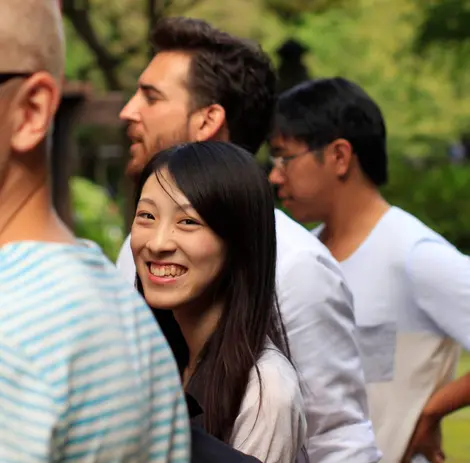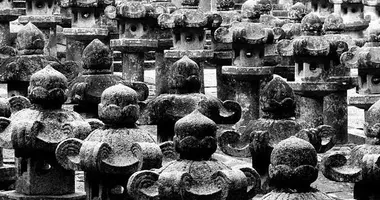10 cultural differences between Japanese and Westerners 日本人と西欧人との文化の違い

Bien que différentes Orient et Occident s'entendent à merveille !
Timo Kovala
Understand each other better
Since time immemorial, there has been a mutual fascination between East and West. France and Japan in particular, each located at the antipodes of the Eurasian continent, seem to deliver a relationship of love but with a limited understanding of the other, and far too often erroneous and distorted. Although it is difficult to provide a simple and fair definition of what the West is, let's try to observe, and have fun if possible, 10 cultural differences between Japanese and Westerners.
1 – Physical contact
Compared to the Japanese, Westerners have a greater facility to come into contact with others (physical contact). While the inhabitants of the Mediterranean countries will kiss each other and those of the North will shake hands at least, the Japanese will practice their legendary kowtow.
Read : Introducing yourself in Japanese
2 – Street names
Although in France, it is only Paris that has the legal obligation to name its streets, the whole of France devotes itself to this exercise. Conversely, in Japan, do not try to look for a street sign, these are extremely rare! Indeed, the streets of Japanese towns and villages do not have names, with some exceptions. A headache for postmen!
3 – Tanning and fair skin
Westerners like to have a light tanned complexion when summer comes, just the opposite of the Japanese! They (and especially them) hardly appreciate tanning: summer in Japan and in Asia in general, it is very hot. Out of habit and to fight against accelerated aging of the skin, Japanese women prefer not to expose themselves too much to the sun.
4 – Individuality and notion of group
Westerners and Japanese people are known to be very different when it comes to group relations. While individualism – and the self-made man spirit – is often acclaimed in the West, it is the culture of the group and the ability to step aside in favor of it that has the wind in its sails in Japan.
5 – Say things directly or not offend the other
This is somewhat the logical continuation of the previous point. This cultural difference (individuality versus group spirit) is often a source of misunderstandings and conflicts between the representatives of these countries. Indeed, it is not usual for the Japanese to put themselves too forward or to be too direct in their remarks.
Read also : In Japan, you never say "no"
6 – Receive at home
It's a fact, the Japanese receive very little at home. This is both a cultural and practical aspect: in general, housing is less extensive in Japan, especially in the city. Conversely, Westerners like to entertain at home and have more space for their guests.
7 – Hospitality
Japanese-style hospitality or omotenashi is popular with tourists visiting Japan. The omotenashi aims to create a pleasant atmosphere for the customer or guest, to provide him with selfless benevolence and to anticipate his desires. Services, public and private, are also of very high quality in Japan. Politeness is key, and we will never leave you in an uncomfortable situation.
See : Omotenashi, Japanese hospitality
8 – Dimensions
Know that in Japan everything is smaller! Whether it's the size of the houses and apartments, the clothes and shoes, the height under the ceiling, the narrowness of the streets, the size of the bed… unfortunately for the big ones in this country! Moreover, more and more young Japanese are "too big" for the standard sizes of their country!
9 – Last name-first name or first name-last name
In the West, as we know, we put our first name in front of our last name. Well know that it's quite the opposite in Japan. Moreover, if people's first names are very often used in various circumstances in France or elsewhere in Europe, in Japan, people are often called by their surname only.
10 – Eat your noodles
It may be a detail for you, but in the West, you learn to eat your soup while making as little noise as possible. And in Japan, it's up to whoever makes the most noise when sucking up his noodles! In Japan, sucking your noodles loudly is a custom! It allows you to more fully appreciate the dish you are tasting, by hearing and smelling: by sucking in the air through the mouth, the flavors spread more widely. In Japanese, there is even an onomatopoeia translating the sound of sucked noodles: zuru zuru !
To read : Japanese udon noodles

Amitié franco-japonaise et internationale
Timo Kovala














